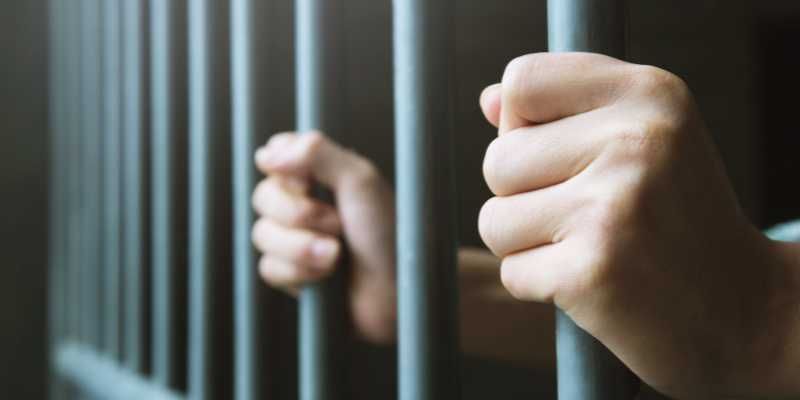Jewish Spirituality and Restorative Justice: A Seeker Finds Her Way Home
Jewish spirituality has deepened my work, impacting those with whom I have had the honor of sharing this experience.

For the last twenty-five years, I have worked in prisons in New York and California, first as an
educator, then a convener of self-help groups and now as a victim/offender dialogue facilitator.
Recently IJSS honored me with a grant to talk around the country on Jewish spirituality and
restorative justice. The experience has been a capstone of my varied career. Not only that, but it
has also moved me in deep and profound ways, learning that Jewish spirituality permeates every
aspect of the work I have done as an educator for over forty-seven years. This article articulates
the varied ways that Jewish spirituality has deepened my work, impacting those with whom I
have had the honor of sharing this experience.
THE PROCESS
I have been a psychotherapist with alcoholics, drug addicts, batterers, victims of violence,
children, and families; additionally, I have taught college, dealing with social problems of all
sorts as a sociologist. Even after that I became a dean at a university, working with faculty,
students, and staff, often those who needed the education to move themselves along in life. Later
in life, in 1995, I began working in prisons (see Leeder (2012), My Life with Lifers: Lessons for
a Teacher, Humanity Has No Bars, Terra Nova Press). Through that work, I was deeply
impressed with the prisoners with whom I worked who had transformed their lives while living
in the most inhumane of circumstances. Most of them men, all of them having had early childhood abuse, violence, family
dysfunction and sometimes even being trained to be warriors on the streets of their cities. By the
time I work with them, most have been in prison for at least ten years and many for as many as
42 years, with everything in-between.
The victim/offender dialogue is a form of restorative justice. Restorative Justice is a tool
that allows everyone affected by crime to communicate and move toward some form of
resolution. I never use the word “closure” since that word connotes ending the situation. Instead,
there is some healing or understanding of why or how this event happened. There is growth and
movement beyond the initial event. The restorative justice movement began as a result of
Aboriginal teachings from New Zealand, the prison abolition movement and some teachings
from the Judeo-Christian faiths (Leung, May, 2001; https://www.cfcj-fcjc.org )
During a restorative justice process, those who were hurt have the chance to talk about
the impact of the incident; they ask questions about why it happened in a face-to-face meeting,
through zoom, or sometimes through letters.
Victims of crime are often excluded, confused, and revictimized by the court
proceedings. They play no role at all in court, where the district attorney presents the case against
the person who did the harm. Restorative Justice brings the person who was harmed back to the
center of the dialogue, allowing them to have their stories heard – to detail the impact the crime
had on them, and to seek answers to questions they have.
It also helps the person responsible for the harm understand the impact of their actions,
thus encouraging them to change their behavior. People who have committed crimes are often
damaged by their life experiences and once in prison, damaged by the dehumanization that takes
place there. Through restorative justice they are allowed to tell their own story, without the
courts or prison system interfering.
HOW THIS ALL RELATES TO JEWISH SPIRITUALITY
Forgiveness is the act of letting go of the hatred; it is the conscious, deliberate decision to release
feelings of resentment or vengeance toward a person or group who has harmed you, regardless of
whether they deserve that forgiveness or not. When a person (like those who are victims of
crimes) forgives there is a relief that takes place, a sense of peace that occurs that can be lasting
and deep. A calmness takes over, without the churning thoughts that can drive one crazy. It is a
way of making peace with oneself and the person who did the harm. When it comes, it feels
soothing, serene, and tranquil. All the survivors I have worked with have described this feeling to
me. Having studied Jewish spirituality I have discovered that there is much evidence that Jewish
values include that of forgiveness. We know that Joseph forgave his brothers for their
transgressions. Values such as Tzedek, that of doing justice is one of our highest goals, that
Chesed (grace and compassion), and Teshuvah (repentance or returning, as if turning back to
something you have strayed or looked away from) and uniqueness of the individual are all part of
the fabric of our belief system. We truly value caring for the stranger and the infinite value of
each human life, all of which permeate Jewish understanding of the human condition.
When we look at the persons who did the harm, they have long held feelings of contrition
and remorse. Even if they cannot engage in a restorative justice process, I have found that every
prisoner with whom I have ever worked (and it now numbers in the hundreds) know that they did
harm and would love to mend it in some way. Most are not afforded the opportunity because
rarely does a victim seek such reconciliation. When allowed to participate in these kinds of
events the person who harmed knows that they have been given a remarkable opportunity. In
many years of offering such dialogues only two have turned me down, both sex offenders who
denied their culpability.
All the men with whom I have worked have participated in self-help
programs while in prison Some have gone to AA or NA; others have done restorative justice
groups within the prison, others have been in healing circles, victim-impact panels or have
already participated in apology letter sessions. Each has tried to find a way to deal with their
crimes to learn from their harmful past behaviors.
WHAT I AM DOING TO FURTHER THESE VALUES
As a result of my grant from IJSS, I have spoken to over 500 people from all walks of
life. I have gone to synagogues, churches, community centers, and professional organizations,
and I have done many podcasts on these topics. I bring in the ideas of Rabbi Menachem
Schneerson (of blessed memory) who spoke about how prisons do not allow those held in these
places to reach their highest potential. I talk about how there is transformation and growth that
can take place when there is a meeting of all parties; a remarkable moment when all those
involved can talk about the crime, and its impact on all concerned. The parties move beyond
suffering to a deep understanding of each as a human being. It is truly an I/Thou moment that is
transformative for all who participate.
Since beginning these talks, I have now established a Chaverah of like-minded Jews who
are engaged in Restorative Justice work. Our hope is that we will be able to collaborate in
conferences, academic papers and assisting each other in the cases in which we work. Although
just at the beginning stages we see great potential for the future of “Jewish Restorative Justice.”
Another area that I am moving into as a result of this IJSS grant is to bring Restorative
Justice to jails in areas where I am requested to do so. Thus far I am working with a Sheriff in
upstate NY, looking into how I might run an RJ program in his county jail for long-term
prisoners who could utilize an insight-oriented group process. Although also in the early stages I
am seeking organizations with which to collaborate on this unique idea. Little has been done in
jails to help prisoners do the redemptive work that can come from this process.
CONCLUSION
The leaders of IJSS have vision and the will to bring Jewish spirituality into places they
have never reached before. Because of this grant Jewish spirituality is being infused into jails,
prisons, communities, and individuals who are learning how being Jewish has daily relevance to
the real world. These are not abstract principles we have been taught. We live them daily doing
our mitzvot in even the most unlikely places. Gratitude and kudos to IJSS for having the vision
and chutzpah to grant funds to make such work possible.
Elaine Leeder
MSW, MPH, PhD
Professor Emerita and Dean Emerita
Sonoma State University
IJSS Fellow for Social Justice and Prison Reform


